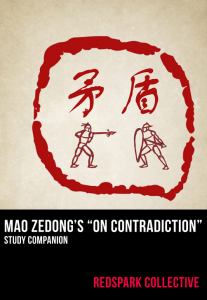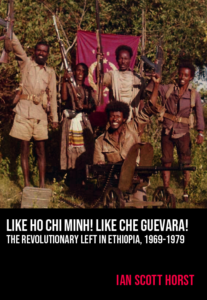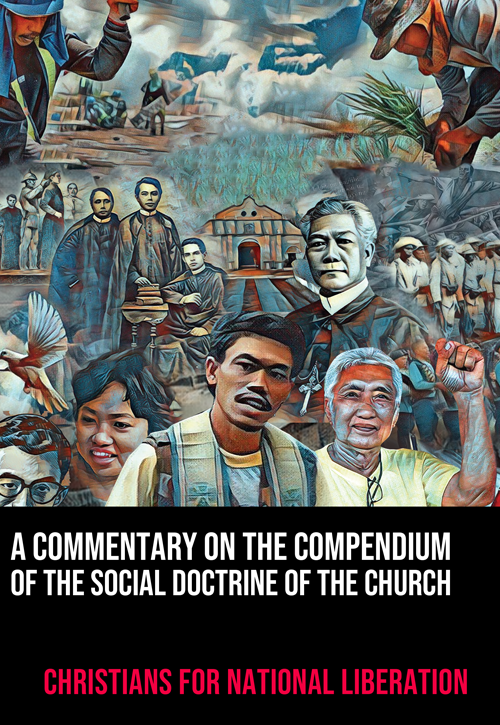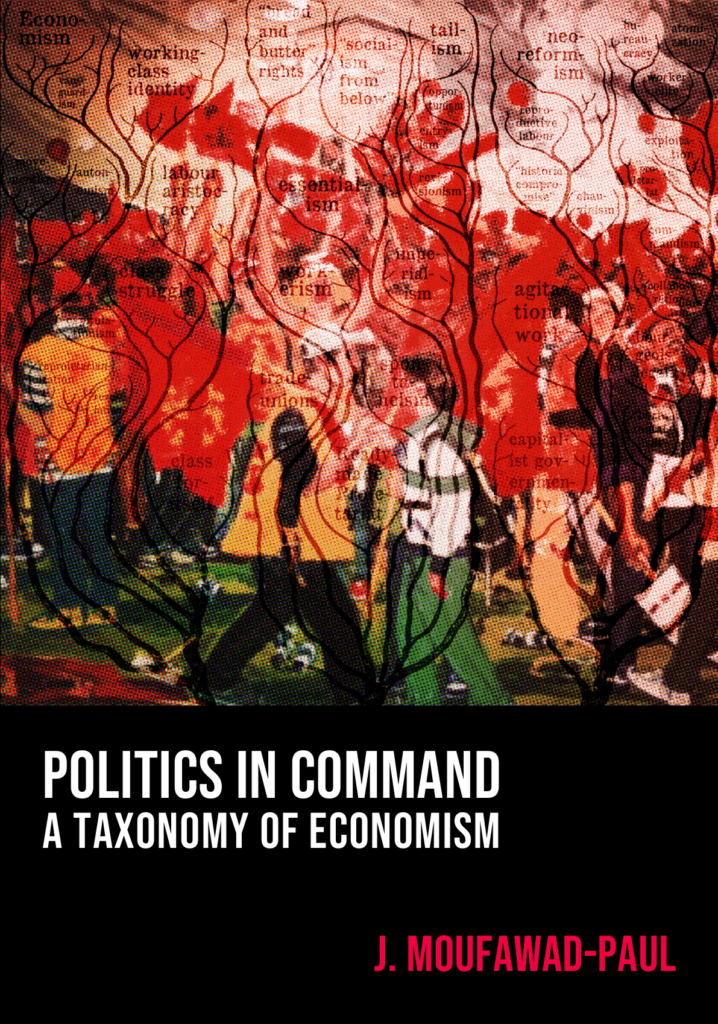


Books in series

#1
From Victory to Defeat
China's Socialist Road and Capitalist Reversal
2019
How can a country that developed the most advanced socialist society in the history of the world change directions so quickly and so completely? In From Victory to Defeat Pao-yu Ching dissects this question, providing economic analysis of what it means to actually “build socialism” with all of the necessary contradictions and obstacles that must be overcome.
Addressing seven commonly asked questions, Pao-yu Ching gives accesible explanations to the complicated issues China faced in its socialist transition and the material basis for its capitalist reversal.

#2
Silage Choppers and Snake Spirits
The Lives and Struggles of Two Americans in Modern China
2011
Silage Choppers and Snake Spirits follows the journey of two Americans who left the United States to experience first-hand the events of the Chinese revolution. Sid Engst came from a poor farming family in upstate New York and found himself on the run from Chiang Kai-shek’s generals in the barren hills of northern China. Joan Hinton went from working on the Manhattan Project in Los Alamos to wearing disguises and ducking the Nationalist government in the Chinese communist underground. The two married and stayed in China to raise a family and help build a new society.
This biography follows their experiences working alongside ordinary Chinese people, from the Inner Mongolian steppe to a state commune in Beijing. Their lives and struggles offer an unsual insight into the events that make up modern Chinese history from Liberation to the Cultural Revolution.

#3
Which East Is Red?
The Maoist Presence in the Soviet Union and Soviet Bloc Europe, 1956-1980
2023
This short essay tells the little known story of anti-revisionists and Maoists in post-Stalin Eastern Europe. Interrogating the myth of a monolithic Marxism in Eastern Europe, overwhelmingly supportive of Khrushchev, Andrew Smith answers the question he posits: To what extent was Eastern Europe red?

#4
Mao Zedong's "On Contradiction" Study Companion
2019
On Contradiction is Mao Zedong’s seminal text on dialectical materialism. Perhaps his most well-known work, it’s been read and studied by millions all over the world and is required reading for all those who seek to objectively analyze the world and struggle to solve the contradictions in it. The Redspark Collective prepared this study companion to assist readers by providing historical and modern day context and examples.

#5
Critique of Maoist Reason
2020
Utilizing the term “critique” in the philosophical sense implied by Kant, Sartre, Mbembe, and others, J. Moufawad-Paul offers an exacting analysis of the different trends that emerged out of the victory, development, and ultimate defeat of the Chinese revolution. Markedly and intentionally different from a polemic, Critique of Maoist Reason is a text for all who consider themselves “Maoists,” as it clarifies and contextualizes various modes of thought within or associated with Maoism. Moufawad-Paul’s latest contribution satisfies its intention to sharpen Maoist thinking through rigorous investigation.
J. Moufawad-Paul’s Critique of Maoist Reason is an important book which should be interesting and useful even for non-Maoist leftists. However, the study of this book is essential for Maoists, since it paints a comprehensive picture of the whole international Maoist movement and its different divisions and tendencies; this, and similar efforts that help clarify the situation, can and must contribute to the struggle for uniting the international Maoist movement. Although some of this book’s issues warrant further discussion–which comes with anything new that is worth discussion–I recommend this book to all Maoists and non-Maoists.
—Zia, Communist (Maoist) Party of Afghanistan

#6
Like Ho Chi Minh! Like Che Guevara!
The Revolutionary Left in Ethiopia, 1969-1979
2020
In 1974 a popular revolution rocked the nation of Ethiopia. Here is the true story of how a generation of young people, inspired by globe-shaking events like the African-American civil rights struggle and the fight against US imperialism in Vietnam—and influenced by the words and deeds of revolutionaries like Ho Chi Minh, Che Guevara, V. I. Lenin and Mao Zedong—confronted the power of Africa's oldest empire. It's also the story of tragedy and betrayal as a revolutionary generation saw its dream of people's power crushed by a left-talking military and the machinations of global superpowers.
Using extensive citations mined from the revolutionary publications of the moment, eyewitness survivor testimonies, unearthed secret Cold War documents, and original historical narrative, author Ian Scott Horst takes us to the center of the revolutionary process to reveal the political debates and life-and-death drama of a revolution made and unmade.

#8
Operation "Green Hunt" in India
Social Practices of the Genocidal Counter-Insurgency Strategy "Hearts and Minds"
2018
Operation "Green Hunt" in India is a succinct text that methodically leads the reader through the damning evidence that the strategy known as “Hearts and Minds,” put into practice by the Indian State with Operation “Green Hunt,” is actually a genocide.

#9
Of Concepts and Methods
'On Postisms' and Other Essays
2020
Of Concepts and Methods is K. Murali’s (Ajith's) new collection of essays, which covers a wide range of topics that are tied together by the author’s ongoing endeavor of “deepening the critique of mechanical thinking.”
Written mostly in prison, these texts grapple with different trends of post modernism which have had a stranglehold on “new” thought for that last several decades, Chavismo and “21st Century Socialism,” and the particularities of the manifestation of fascism in India. The essays not only delve into critique and analysis of contradictions in the world today, but also investigate questions about the basis for a materialist ethics, the politics of liberation, and the essential qualities of a vanguard party in current times.

#10
The German Communist Resistance
2023
When the KPD was banned, its paramilitary formations numbered over 100,000 members. The Antifa League had 250,000 members. Nazi repression left activists who had been unable or unwilling to leave Germany with a choice between three mindsets. Some, discouraged by the terrible defeat of the communist movement, deprived of leadership and intimidated by state terror, abandoned the struggle, and a small number collaborated with the regime. But tens of thousands of communists adopted a position of resistance. Party structures crumbled, cadres were imprisoned or exiled, sympathizers were watched. But clandestine Party organizations were reconstituted very quickly, to be generally just as quickly dismantled… and rebuilt again. This book tells the forgotten story of this communist resistance.

#11
Revolution and Counter-Revolution
China's Continuing Class Struggle Since Liberation
2012
This book examines the class struggles between the revolutionary and counterrevolutionary forces in China, waged since its liberation. The class struggle in China - that went through the socialist construction, the Cultural Revolution, and the capitalist Reform - has been deep, and it has touched every aspect of Chinese society.
Dr. Pao-yu Ching demonstrates how, in the past decade, the struggle waged by workers, peasants and progressive intellectuals against the exploitation and oppression of the capitalists and state bureaucrats has intensified and will definitely continue into the future.

#12
A Commentary on the Compendium of the Social Doctrine of the Church
2022
In 2004, the Vatican released the Compendium of the Social Doctrine of the Church, a document summarizing the Catholic Church’s position regarding various social issues, human rights and peace, as well as the attitude Catholics should adopt towards them.
Christians for National Liberation is an organization of priests, nuns, pastors and seminarians in the Philippines and part of the National Democratic Front of the Philippines. CNL released this Commentary on the Compendium on its 50th anniversary to facilitate the teachings of the Bible and the life of Jesus from the perspective of Christian duty in the face of tyranny.

#14
Politics in Command
A Taxonomy of Economism
2022
Since the economic crisis of 2008, the concept of social class emerged again as central in critical theory. Temporarily eclipsed in the metropoles by the focus on other sites of oppression, the possible return of class and class struggle to the centre of academic and activist discourse brings with it the same economism that other radical conceptions of politics seemed to displace. Politics in Command seeks to understand what economism is, how it is deployed through socialist analyses, and the ways in which various categories (economy, politics, class, practice, revolution, etc.) are mobilized and classified according to its imaginary.
“J. Moufawad-Paul… deliver\[s\] an all-round, nuanced exposition of economism, while probing class as it really exists and critically engaging with a variety of views that either deny the primacy of class or dissolve it in the many identities that mediate it.”
—K. Murali (Ajith), author of Of Concepts and Methods and Against Avakianism
“Despite its philosophical detail, Politics in Command is incredibly clarifying for people of the left trying to make sense of our situation in the 2020s. J. Moufawad-Paul deftly navigates the perilous and complicated terrain of identity politics and class reductionism to arrive at a satisfying critical analysis of economism, a problem rarely (if ever) addressed so directly and provocatively. At the core of this book is a compelling argument that our problem is not in giving analytical primacy to class relations, but in failing to understand the myriad ways class is itself shaped by race, gender and other forms of oppression not normally considered ‘economic,’ and how much is lost in our capacity to organize revolution when we fail to see class as a political, not just economic, category. Characteristically sharp and engaging, Moufawad-Paul again illustrates that the philosophical foundations of our ideology matter and that, if unattended, the scourge of economism leads us into organizational and theoretical dead ends. A book that is at once dynamic and polemical but simultaneously rigorous, nuanced, and sensitive to the specificities of its moment, Politics in Command should be read by everyone trying to build a new communist left.”
—Tyler Shipley, author of Canada in the World: Settler Capitalism and the Colonial Imagination
“With Politics in Command, J. Moufawad-Paul dissects and analyzes the issue of economism, giving devastatingly clear insight into the question of why, in spite of our many and varied efforts, the Left has been unable to advance in any meaningful, qualitative way towards building a revolutionary movement in the imperialist centers. Read this book if you seek to understand why the mass work, union involvement and Left unity efforts you’ve engaged in have failed to bring about the revolutionary consciousness among the workers that you’d hoped and planned for. Read this book if you struggle for revolution in an imperialist country knowing that conditions in the peripheries are different—and want also to understand how those differences impact class analysis, organizations, and organizing tactics and strategies. Moufawad-Paul is trained as a philosopher and works as an academic. But this and all of his political writing reveal at their core, a militant who strives above all else to make his unflinching and methodically evidenced work of use to those of us who seek to understand the world in order to change it. This book is highly relevant and immediately useful; it is a sharp tool to eviscerate the blunt, dogmatic obstacle of economism, in order to create and progress on the path to making revolution.”
—Dao-yuan Chou, author of Silage Choppers and Snake Spirits – The Lives and Struggles of Two Americans in Modern China
“In Politics in Command, J. Moufawad-Paul provides a necessary critique of the normativity of economism while uplifting the urgent necessity of fomenting revolutionary consciousness. This timely study not only describes the impediments of economism, it provides a guide on how to change them. Through an incisive analysis of the past and present iterations of economism such as economic determinism, trade union consciousness, the labor aristocracy, and workerism, Politics in Command asserts that we must understand the political dimensions of class and class struggle to confront the rising tide of neofascism. Like his previous books, J. Moufawad-Paul urges us to arouse, organize, and mobilize toward a “new return” to the notion of the communist party. This can only be done by placing politics in command of the class struggle.”
—Steven Osuna, Associate Professor at California State University, Long Beach

#16
Clausewitz and the People's War
2004
Carl von Clausewitz is one of the greatest military thinkers of all time. His analysis extends beyond the realm of specific historical experiences and develops military theory to a high level of generalization. Studying the relationship between war and politics—the interplay between the military command, the civil government, and the people, as well as the phenomena that lead to or hinder the escalation of violence—Clausewitz amassed a substantial and original body of work, which gained increasing recognition from the end of the 19th century. But it was not within the ranks of the military command that Clausewitz’s thinking had the greatest impact. Instead, his closest readers were to be found among the theoreticians and practitioners of people’s and revolutionary war. While Clausewitz’s influence on Lenin has long been documented, the imprint of his ideas on Engels, Mao, Giáp, and others has remained relatively unknown. The first French edition of "Clausewitz and the People’s War" illuminated this influence and made it possible, beyond the history of ideas, to approach questions of revolutionary warfare from unexplored angles, and creatively engage in current and historical military debates.
This English translation is a revised and extended version of the original 2004 edition in French. It includes additional articles and a glossary, as well as a historical chart of political and military organizations, revolutionary and people’s wars from the Napoleonic era to today.
Authors
Pao-Yu Ching
Author · 2 books
Pao-yu Ching is a Chinese-American Marxist–Leninist–Maoist economist and professor emerita of the Marygrove College. Her works focuses on the socialist transition in Modern China, regarding its economics but also the changes in society, culture and women's rights. She is noted for her critical analysis of the Chinese economic reforms of Deng Xiaoping.
Christians for National Liberation
Author · 1 book
The Christians for National Liberation (CNL) is an organization of priests, nuns, pastors and seminarians in the Philippines and part of the National Democratic Front of the Philippines.
